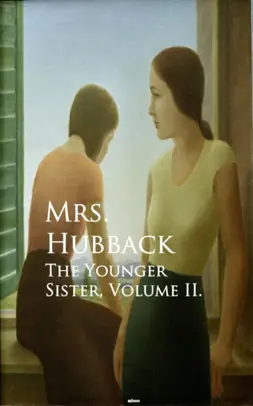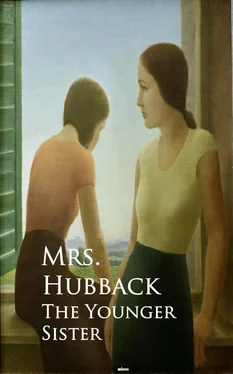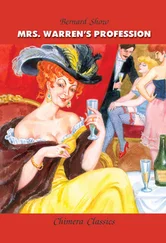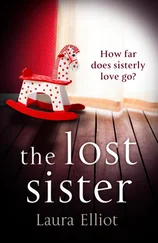THE YOUNGER SISTER. THE YOUNGER SISTER. A Novel BY Mrs. HUBBACK,
IN THREE VOLUMES. — VOL. I.
IN THREE VOLUMES. — VOL. II.
IN THREE VOLUMES. —VOL. III.

A Novel
BY Mrs. HUBBACK,
IN THREE VOLUMES. — VOL. I.
TO THE MEMORY OF HER AUNT,
THE LATE JANE AUSTEN,
THIS WORK IS AFFECTIONATELY INSCRIBED
BY THE AUTHORESS
WHO, THOUGH TOO YOUNG TO HAVE KNOWN
HER PERSONALLY,
WAS FROM CHILDHOOD TAUGHT TO
ESTEEM HER VIRTUES,
AND ADMIRE HER TALENTS.
Aberystwith
Feb.
1850.
CHAPTER I.
The Reverend John Watson, who, for the space of twenty years, was the incumbent of the village of Winston, had not always been such an indolent invalid as he appeared to those who only knew him during the last ten years of that time. When he was inducted into the living, he was a husband and the father of five children; a sixth was very shortly added to their nursery; and, for several years after her birth, Mrs. Watson's activity, good judgment, and influence with her husband, preserved, for him, the esteem and respect of his parishioners, and the character amongst his acquaintance, of a very kind and attentive neighbour, and a most highly respectable parish priest. But, with her life, his energy seemed to depart; he became indolent from sorrow; shunning society—shrinking from exertion—and confining himself to what was absolutely unavoidable of his duties. This line of conduct, begun from grief, which seemed to prostrate his mental strength, was continued from self-indulgence, long after the poignancy of the grief was worn away, and it ended in really entailing the ill-health—from which, he had, for sometime, pleased himself with fancying that he suffered. Frequent attacks of the gout, disabled him from much exertion, and often confined him to his room for weeks together.
In the meantime, his family grew up with almost every disadvantage that could attend them. Motherless, and unchecked by their father, his girls—at least, the three eldest—were left entirely to their own guidance and discretion, or indiscretion, to speak with more propriety; and the sons were early sent out, to fight their own way in the world, without the softening influence of domestic ties, or the memory of a happy home to warm their hearts and strengthen their principles.
The only one of the family who could be said to have received a good education, was the youngest daughter, Emma—who, on her mother's death, was begged of her father by his brother-in-law, and brought up by him and his wife, as tenderly as if she had been their own. He was a wealthy man; and by her own family, when they thought of her at all, she was generally considered with something like envy—excepting by her eldest sister, who had been too fond of her as an infant, not to rejoice in her removal to a better home. It was considered as indisputable by the others, that she was uncommonly lucky; since, beyond doubt, her uncle would leave her handsomely provided for; and the only question on that subject, which was debated with much anxiety, was, whether he ought not to divide his wealth equally amongst them all, or whether the eldest son should inherit the greatest share. Mr. Robert Watson, the expectant nephew, was an attorney at Croydon and his flourishing business, joined to his great expectations from his rich uncle, had proved overpowering attractions to a young lady in that neighbourhood, to whom he had been united for several years, when the death of his uncle occurred. Had the greedy anticipations of the nephew, or the selfish hopes of his vain wife, been the only disappointed feelings on the occasion, nobody, but themselves, would have much cared. But Mr. Pearson, in his will, trusting much more to the steadiness of his wife, and less to the affection of his niece, than either deserved, left the whole of his property in the widow's power. He intended, perhaps, by this measure, to secure to her the respect and attention of his sister's children, whose interest it thus became to keep on good terms with their aunt; and was very far from anticipating the catastrophe that ensued. Instead of acting the part of an indulgent aunt, or of a patronising and tyrannical one, Mrs. Pearson took an active part to obliterate all trace of the connection, by bestowing her hand, and her first husband's property, on a handsome but poor young Irishman; and, on her shortly after quitting England, to visit his relatives, she kindly gave Emma leave to return to her father's house, with a generous present of fifty pounds to be divided between her and her sisters.
At the period of her return home, Emma found her two younger sisters were absent; and the affectionate warmth with which Elizabeth Watson received her, joined to the silence of her father on the mortifying subject of her aunt's marriage, did great good to her heart and feelings. The painful sensations which the union in question had occasioned her, were quite as strong as the indignation, and far more amiable than the disappointment, which had been experienced by other members of her family. She had loved and revered her uncle, and would not, even to herself, admit that he had been unjust, hardly even injudicious in the disposition of his property. But she had, also, loved her aunt; and the memory of old obligations, and gratitude for long-continued kindness, struggled painfully with less agreeable feelings. So far as her own loss of fortune was concerned, she did not consider it worth a regret: having been early accustomed to the luxuries of a handsome income, she had not the smallest practical knowledge of what poverty is; and, therefore, with the generous indifference natural to an amiable and liberal mind, she would have felt no resentment, had this been the only evil attending the marriage. But the fear that her aunt was bringing unhappiness on herself, by her injudicious choice; the certainty that she was rendering herself an object of contempt or ridicule; and the disappointment to her own affectionate heart in being thus cast off for a stranger, though each bitter in itself, were altogether easy to bear, compared with the glaring disrespect to her beloved uncle's memory, which these hasty nuptials testified. This cut her to the heart; and perhaps it was the silent reproach which her looks conveyed that made Mrs. Mac Mahon so very desirous that Emma should cultivate an acquaintance with her own family, from whom she had been too long separated. With the strong feelings of a warm and youthful mind, not yet versed in the fleeting nature of every human woe, she deemed this a grief which time might soften, but could never quite heal; and though rejoicing at the prospect of meeting with her sisters, and cultivating an unremitting and unfading affection for them, she was convinced that she never should quite got over the disappointment her aunt had caused her.
The Christmas assembly was fast approaching, and Mrs. Edwards had, as usual, invited one of the Miss Watsons to accompany her family to the ball. The absence of Penelope and Margaret prevented there being any indecision as to which should be the fortunate individual. Mr. Watson could not be left quite alone, and Emma having never been to a ball, Elizabeth, without hesitation, decided in her favour.
For the first day or two that it was in contemplation, Emma, true to her pre-arranged hopeless despondency, took little interest in the prospect; and though strongly feeling her sister's good nature, and, for her sake, trying to seem pleased, would really have given up her place without a sigh, to any individual who desired it. But the interest of preparing her frock, arranging her ornaments, and settling the minute details of the toilette, had the same irresistible attraction for her, that they would have for nine girls out of ten, and when the important afternoon arrived, she was in a very pleasant state of excitement on the subject.
Читать дальше













